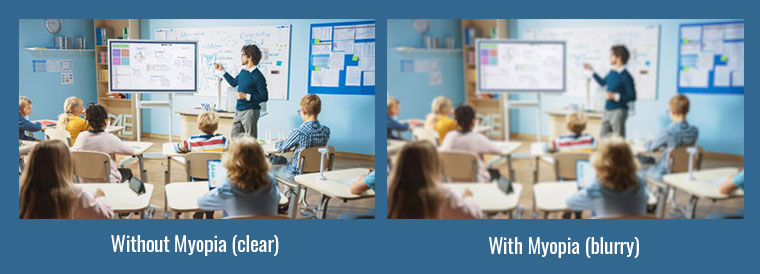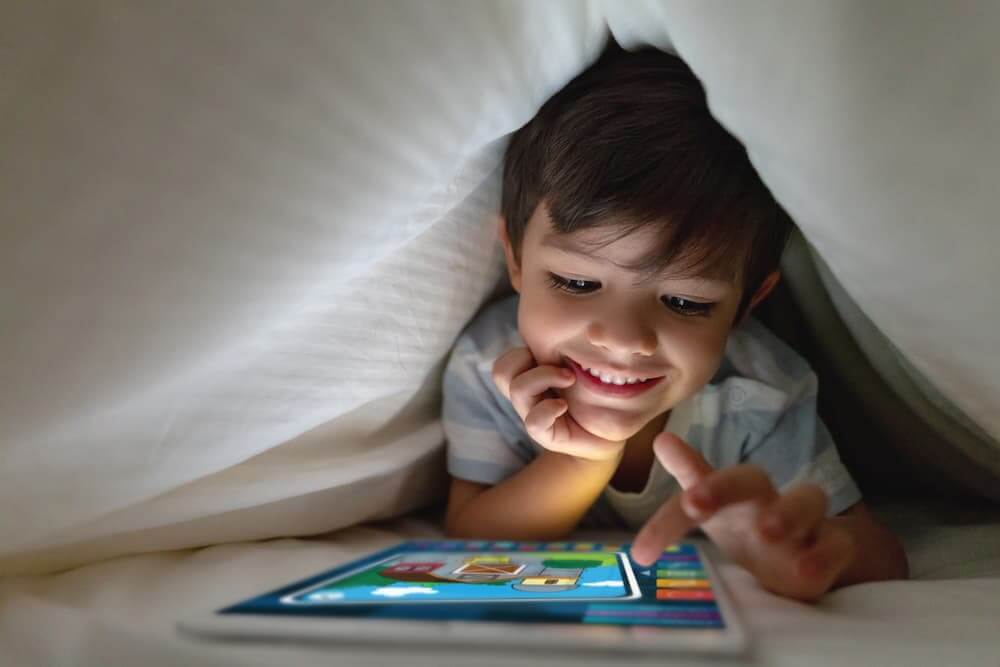Everything you need to know about myopia and how to protect your child’s ocular health
What Is Myopia?
Myopia, most commonly called nearsightedness, is a visual condition that causes poor long-distance vision. In other words, close-up objects appear clear but far-away ones are blurry.

Myopia on the Rise Globally
The subject of myopia is more important than ever as the number of people affected all around the world is on the rise. In an important study on the subject, the American Academy of Ophthalmology predicts a rapid increase in individuals living with myopia in the coming decades, projecting that today’s numbers (around 23% of the world’s population) will grow to more than 49% by 2050.
Although myopia has a hereditary element, most experts agree the significant increase in very recent years is related to environmental factors, including increased screen time and less time spent outdoors resulting in a deficiency in natural sunlight exposure.
Childhood Myopia Epidemic
Even more concerning is the rapid increase in the development of myopia in young people. That increase mentioned above is even more prevalent in children. These same studies indicate that increased screen time and not spending enough time outdoors also plays a significant role in the development of myopia in children.
Myopic Progression in Children
Mann Eye Institute is a leader in the management of Myopic Progression (where the nearsightedness gets worse year over year). Many parents are concerned about children becoming more nearsighted as they are increasingly using more digital devices for both instructional and leisure time. The good news is, myopic progression can be treated, and in many cases, prevented.
Treating Myopic Progression in Children
At Mann Eye Institute, we are proud to be on the leading edge of treatment for myopic progression. Myopia Control is a type of therapy we offer our pediatric patients who are systematically becoming more and more nearsighted. The options we offer are:
Atropine Eye Drops
Several studies have shown that atropine eye drops are effective in slowing myopia progression in young children. This easy, minimally invasive treatment consists of an eye drop applied daily at bedtime for one year. That’s it! Our clinical team will follow up with the patient every six months to monitor for any changes.
Multifocal Contact Lens
Soft multifocal contact lenses are commonly used to correct vision for those over the age of 40 that require not only distance correction but also near correction. This modality has been studied and research suggests it is effective in slowing myopia progression while utilizing a center distance, extended depth of focus design.
Ortho-K Lens
As an alternative to a daily soft contact lens and eye drops, ortho-k lenses have also been well-studied as an approach to decrease the rate of myopia change in children. Used overnight to correct vision, these lenses allow children to maintain clear and comfortable vision throughout the day without the need for vision correction while reducing the rate of myopia progression.
Why Is It Important To Slow Myopic Progression In Children?
Myopia is related to how your child’s eyes are growing. For this reason, it’s important to control the progression of this vision-stealing condition.
- As your child’s eyes grow and their myopia increases, dependency on glasses increases
- Poor vision can reduce the ability of children to participate in sports and other activities
- Increasing myopia can lead to eye health problems in the future, including an increased risk of pathologic ocular changes such as cataract, glaucoma, retinal detachment and myopic macular degeneration, all of which can cause irreversible vision loss.
Is Pediatric Myopia Management Right For My Child?
At Mann Eye Institute, we want every patient, young and old, to See Life Better. We want to make sure parents are aware, informed and equipped to make important decisions for their children’s ocular health.
Who is a candidate?
- Children up to 17 years old
- Progression of myopia 0.50D or greater
- Family history of myopia
Schedule your child’s evaluation with one of our vision experts specifically trained in Pediatric Myopia Management today.


